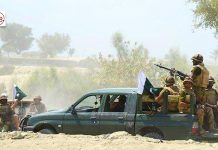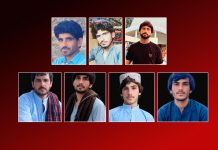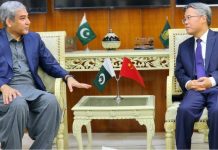Hezbollah leader Hassan Nasrallah has been killed in an Israeli air attack on Lebanon’s capital, Beirut, according to statements from both Israel’s military and Hezbollah.
“Hassan Nasrallah is dead,” Israeli military spokesman Lieutenant Colonel Nadav Shoshani announced on X (formerly Twitter) on Saturday.
The Israeli military further said that Ali Karki, the commander of Hezbollah’s southern front, along with other senior Hezbollah commanders, were also killed in the airstrike on Beirut’s southern suburb of Dahiyeh on Friday.
Israel Defense Forces Chief of Staff Herzi Halevi said that the strike did not signify the end of Israel’s operations. “This is not the end of our toolbox,” he said. “The message is simple: anyone who threatens the citizens of Israel — we will know how to reach them.”
While Hezbollah did not immediately comment on the Israeli announcement, the group later confirmed Nasrallah’s death, vowing to continue its fight against Israel “in support of Gaza and Palestine, and in defense of Lebanon.”
Regional Tensions Rise
Iran’s Supreme Leader Ayatollah Ali Khamenei responded to the news by saying that the future of the Middle East “will be determined by resistance forces, the foremost of which is Hezbollah.”
He added that the group’s “solid structure cannot be significantly damaged” by “Zionist criminals,” criticizing Israel’s “short-minded and stupid policies.”
The past two weeks have seen a sharp escalation in Israel’s offensive against Hezbollah, targeting and killing several senior commanders. This week, Israel launched an intense bombardment across Lebanon, resulting in over 600 deaths and the displacement of more than 90,000 people.
On Wednesday, Israel mobilized two reserve brigades for “operational missions” in the country’s north, with Halevi advising troops to be prepared for a possible ground offensive in Lebanon.
The Israeli military continued its operations on Saturday, with “extensive” bombing raids in the Bekaa Valley in eastern Lebanon and additional strikes in Beirut, after warning civilians in densely populated neighborhoods to evacuate.
“We are ready for a wider escalation,” Halevi said, adding that Israel’s forces were on high alert, but no changes were required to civilian guidelines. “These are tense days.”
Nasrallah: The Secretive Leader of Hezbollah
Hassan Nasrallah, a cleric from a Shia family in Beirut, took control of Hezbollah in 1992 1992 after the assassination of his predecessor, Abbas al-Moussawi, by Israel. His leadership positioned him as a key figure within Iran’s “axis of resistance” against Israel and its allies.
Under Nasrallah, Hezbollah transformed from a militia into Lebanon’s most powerful political and military force, exerting significant influence over state institutions and maintaining a large arsenal that surpassed the Lebanese national army.
Due to security concerns, particularly after the 2006 war with Israel, Nasrallah adopted a secretive lifestyle, rarely making public appearances. Most of his speeches were broadcast through video links from undisclosed locations, and he often moved to avoid being targeted.
Despite his limited public visibility, Nasrallah was known for his compelling oratory skills and was revered by his Shia support base for providing social services, healthcare, and education in Hezbollah strongholds.
However, his leadership was controversial for its close ties with Iran and support for the Syrian government during the civil war, which drew criticism from those opposed to Hezbollah’s influence in Lebanon and its military approach.
Nasrallah’s tenure saw Hezbollah rise to become Lebanon’s dominant political force, described by some as a “state within a state.” His death raises uncertainty over the future of the group, which was established by Iran during Lebanon’s civil war in the 1980s, and could potentially plunge Lebanon into further chaos.






























